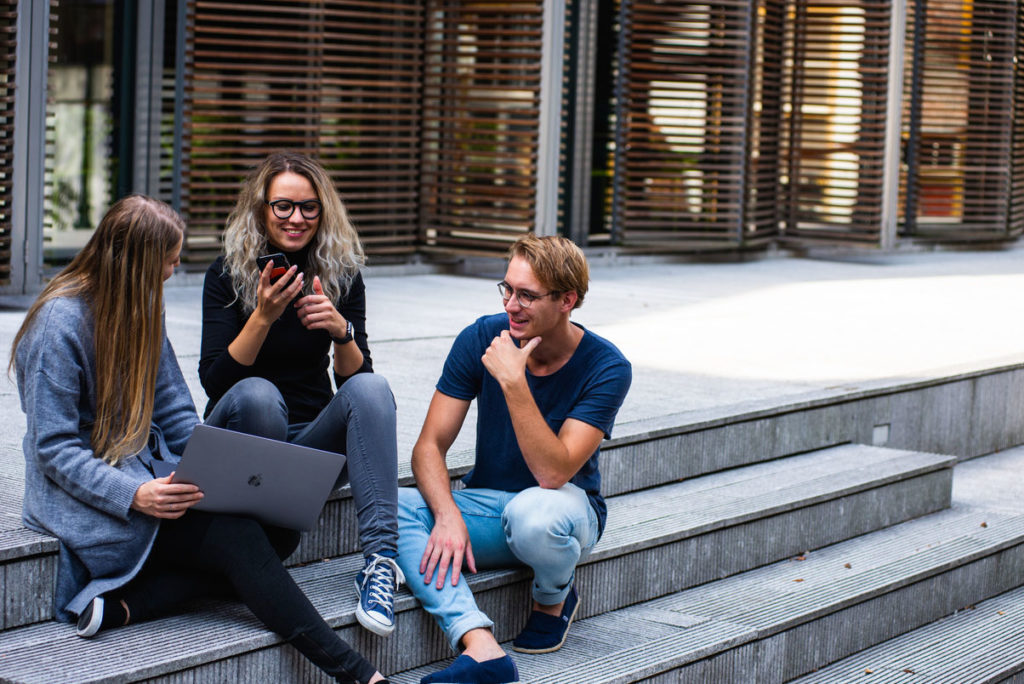Power of Connection

Humans have a fundamental need to interact with others, to be socially active and to feel connected. Widespread research that shows evidence of the value social connectedness has on mental health. Being connected to others can be a protective factor against anxiety and depression, and can increase your feelings of happiness and self-worth. Despite this, many in our population are experiencing a deficit of social connection.
Social connection doesn’t mean physically being present, it’s someone’s subjective experience of feeling understood and connected to others. It includes a sense of belonging, feeling cared for, and gives purpose. It’s not about the number of friends you have, the number of groups you are a part of, or how much time you spend socialising. The benefits of social connection come from your internal and subjective sense of connection.
Benefits of Connection
Social connection improves your physical, mental and emotional health. Studies have shown proven links between strong social connectedness and a strengthened immune system and longer lifespan. Mental health benefits include lower rates of anxiety and depression, higher self-esteem, improved confidence and reduced levels of stress. Because of strong social connection, people experience greater empathy, and are more open to trusting and cooperating with others thereby strengthening relationships.
Feeling connected to others can have a significant positive impact on our mental health and wellbeing. However, the level of social connection we desire varies from one person to the next. For many of us, having a busy life can make spending time with people difficult. One way to strengthen your social connectedness is to reach out to the people you already know, who are already a part of your communities. Strong social connections with family and friends provide opportunities for us to share positive experiences, receive emotional support and support others.
How to increase your social connections?
There are many ways an internal sense of connection can be built, strengthened and nurtured. Below are some strategies to enhance your social connectedness.
- Call instead of texting: phone calls create stronger bonds than text-based communication. Research has shown that people feel significantly more connected when they communicated by talking rather than typing
- Schedule regular video chat calls with friends and family: maintaining regular contact with friends or family is imperative for reducing feelings of social isolation and improving connection. Schedule a regular call at a particular time or day. Use video calling platforms to improve your interaction with face-to-face communication.
- Make time to spend with family (or close friends you call family): being physically present with loved ones creates a strong bond, with these close loved ones bringing the strongest benefits of connection. Gather to create fun and meaningful memories through connection. Play a board game, enjoy a meal together, share stories and create positive experiences.
- Reach out to a neighbour: creating positive and meaningful social connections with people outside of your normal groups or relationships can increase your sense of belonging, bring happiness and a sense of purpose. This connection can be achieved through a smile, a short chat, kind gestures (such as bringing their bin in) or hosting a neighbourhood event.
- Catch up with old friends: in the age of social media, it’s easy to feel like we are connected despite it being months or potentially years since you have communicated with friends. Reconnecting with old friends after you’ve lost touch can be tricky but an incredibly rewarding social connection. When reconnecting with old friends start simple such as a phone call, a coffee catchup, or a meeting with more than one.
- Put your phone away: to enhance the power of connection, put your phone away when engaging in social interactions with those in your community. Social connection is a sense of belonging and feeling cared for. Being distracted by your phone can lead to you missing out on the chances to boost your sense of social connectedness.
- Volunteer at a local community group: not everyone is as connected as they would like to be with friends or family. Connecting with our community through volunteering your time and effort can bring more purpose in life and improve physical and psychological health.
- Connect with your colleagues: work is a community we are a part of that gives us a sense of connectedness. For many, we spend more waking hours at work, than with any other significant relationship. Enhancing your social connection with colleagues could include keeping up with their interests, showing value in them as a person, offering your full attention, create a social spot (such as a break room or a nearby park) or sharing a meal.
Final Words
In a climate where social distancing is enforced, remote working is increasing and lockdowns continue, human connection is more important than ever. The benefits of social connectedness shouldn’t be overlooked when improving our mental health and wellbeing.

